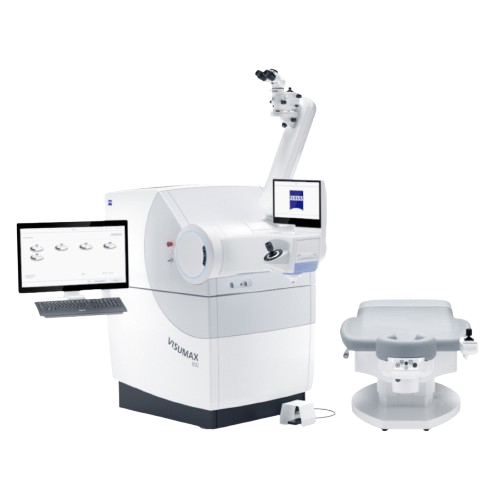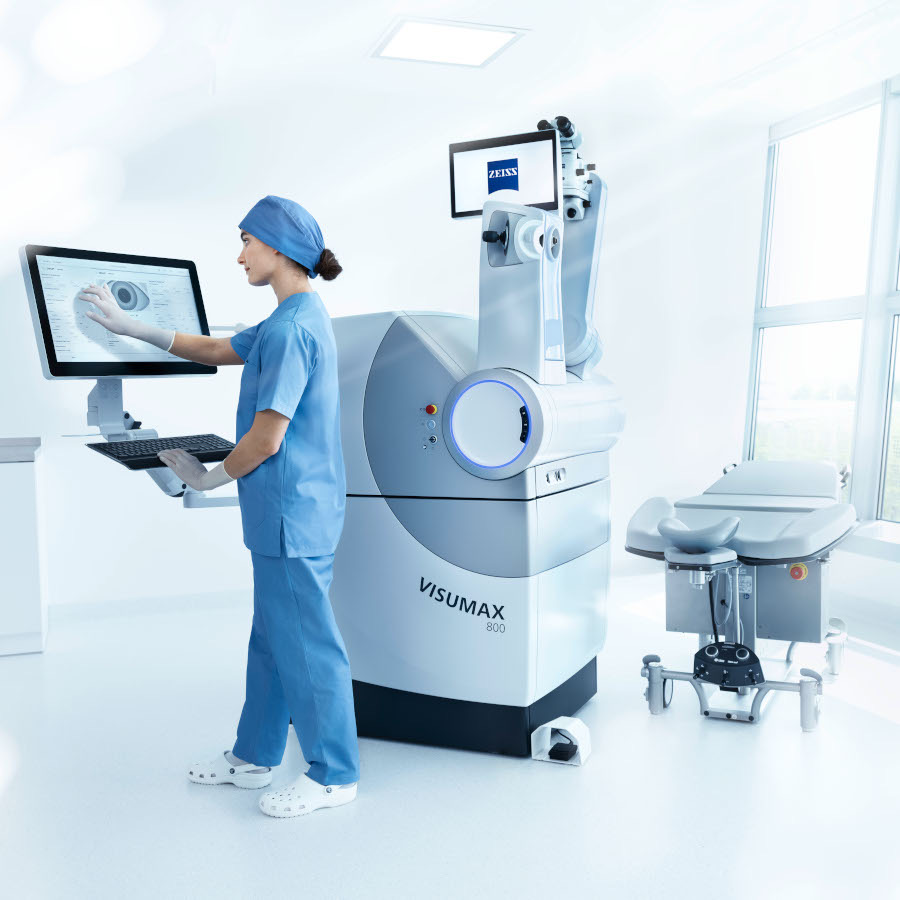Zeiss VisuMax® 800
La cirugía láser del futuro. Incisión mínima, máxima precisión y recuperación en 24 h.
Único centro en Colombia con esta tecnología.

- 2–4 mmIncisión
- 24 hRecuperación
- ↓ ojo secoMenor riesgo*
Sin flap corneal (ReLEx SMILE)
Corrección mínimamente invasiva que preserva mejor la estabilidad corneal.
Precisión alemana
Plataforma Carl Zeiss con control ultrarrápido del pulso láser.
Menor sequedad
Incisión micro-pequeña que reduce el compromiso de la película lagrimal.
Retoma en 24 horas
Recuperación rápida para volver a tu rutina cuanto antes.
